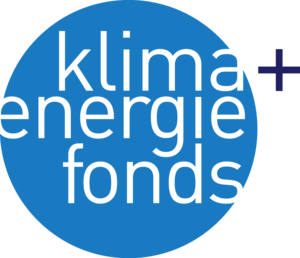OptPV4.0
PHOTOVOLTAIC SYSTEMS
Sudden errors and creeping degradation processes lead to significant losses in the yield of PV systems and affect profitability. Previous methods for root cause analysis rely mainly on special measurements on site, which causes additional costs and valuable time elapses. The project's core objective is to optimize the operation of photovoltaic systems, to increase and secure their revenue and profitability by researching and applying system-wide data analysis and modelling concepts for early detection of errors and creeping degeneration. This results in five main sub-goals that should be researched in this project: i) development of a sensor upgrade kit for the acquisition of important plant data, ii) standardization of possible errors and their reliable identification by innovative algorithms, iii) definition of a Database structure for the efficient storage and analysis of PV plant data and metadata, iv) physical and statistical modelling and validation of the developed models, and v) concepts for predictive maintenance including cost-benefit analysis.
PROJECT GOAL
Ensuring the long-term performance of photovoltaic power plants and optimizing their operations and maintenance procedures are two very important factors to improve their profitability and thus accelerate the worldwide transition to renewable energy sources. Performance losses due to sudden errors or gradual degradations must be avoided or at least minimized. To that end, the roots of any errors must be identified quickly and reliably in order to be able to minimize potential down times through appropriate maintenance actions. In addition, negative trends in the performance have to be analyzed and extrapolated over time so that predictive maintenance actions can be performed before any significant loss in performance occurs. Current strategies for error analysis require on-site measurements with specialized equipment which causes additional costs and further delays. A predictive analysis of trends in PV plant performance is also not implemented; there exist only theoretical concepts and feasibility studies of limited scope.
The main goal of the project OptPV4.0 is to optimize the operations and maintenance procedures of PV power plants in order to improve and secure their energy yield und thus their economic viability. This will be achieved by researching and applying data analysis and simulation concepts for early detection of errors and degenerations on a system-wide level. Due to the heterogeneity of the different causes of errors and the dependency of their symptoms on climatic, topographic and geographic conditions, reliable identification and modelling can only be achieved using advanced analysis methods and large amounts of data including meta-data. The proposed project will perform significant steps to reach this goal: All errors present in archival data will be standardized and added to a database that will be developed as part of this project. A sensor upgrade kit will be designed to measure important data that is not usually available; it will be installed at real PV plants for data collection. With data from the PV plants and the sensor upgrade kit, physical and statistical analysis models will be trained and evaluated for quick identification of sudden errors as well as for the analysis of longer-term trends in order to implement predictive maintenance strategies. The results of the project represent an important step towards improving the economic viability of PV plant operations and will support the further dissemination of PV plants and their contribution to the global transition to renewable energy sources and the global climate goals.
PROJECT FACTS
- Title: OptPV4.0 – Innovative optimized operation and maintenance of photovoltaic
- Programme: Energieforschungsprogramm
- Funding institution: FFG Forschungsförderungsgesellschaft mbH
- Lead management: Silicon Austria Labs GmbH
- Industrial partners: ENcome Energy Performance GmbH, Fronius International GmbH, the peak lab. GmbH & Co. KG, Uptime Engineering GmbH, VERBUND Hydro Power GmbH
- Research partners: University of Leoben
- Duration: 2 years (March 2019 - February 2021)
- Research volume: € 2.4 million
- Web: https://www.klimafonds.gv.at/


Your contact person

DI (FH) Wolfgang Mühleisen
Senior Scientist | SAL MicroFab
e-mail: contact@silicon-austria.com
Research program
This project is funded by the Climate and Energy Fund and carried out as part of the 2018 Energy Research Program.




